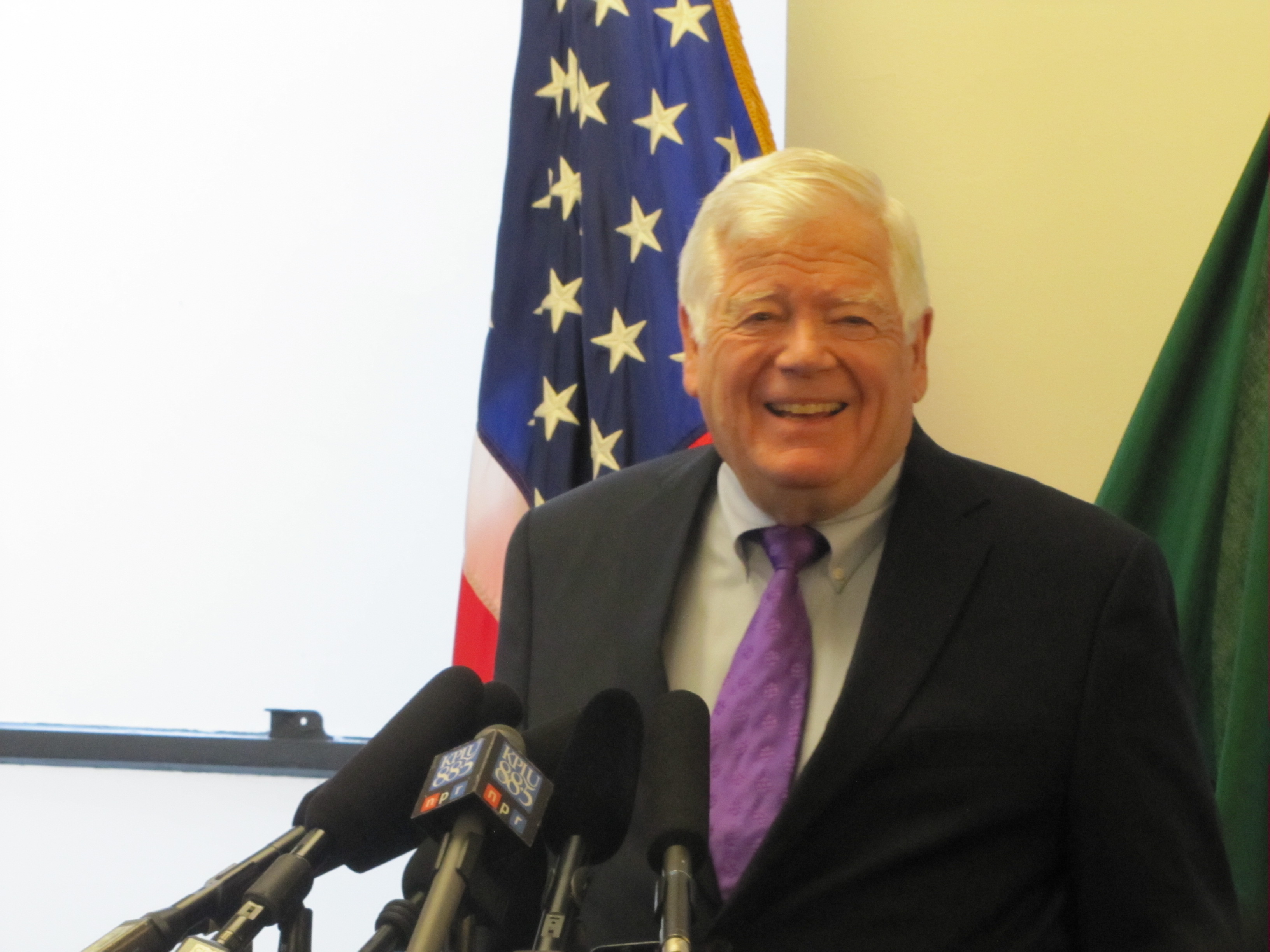Jim McDermott, Seattle’s liberal conscience incarnate in the U.S. House of Representatives, announced his retirement from Congress at a small press conference downtown Monday, ringed by a throng of reporters asking him to sum up his 45-year legacy in government. The man’s career includes a lot of what you’d expect from a die-hard liberal from Seattle: helping to pass major health care reform, earmarking millions of federal dollars for our fair city, and being the lone lefty voice in an increasingly shrill, right-wing political bullpen.
McDermott denied that his decision to retire had anything to do with a chance of losing the election next year (State Representative Brady Walkinshaw could have given him a run for his money), or a dysfunctional Congress (we wouldn’t blame him). Instead, it sounds a lot more like McDermott, 79, in his 14th term as a Representative for the 7th Congressional District, is damn tired, and ready to move on. “This was not an easy decision to make, because I don’t like to quit,” he said. “There are things I still want to do and would like to see happen. But there’s a time when you say to yourself, ‘Enough.’ You’ve done what you can do.” For example, he’s glad that Obamacare has improved health care access for a lot of Americans, but it hasn’t done much yet to help with costs; that, he said, is still a long way off. “I could work on health care for the next ten years,” he said, “and it wouldn’t be fixed.”Still, he feels satisfied with his work over the years; “there were plenty of opportunities to do good things that I was really proud of,” he said. McDermott, for instance, made a name for himself as one of the few politicians who openly opposed the Iraq War back in 2003. He recalled saying at an early press conference in Washington, D.C., that “George Bush is so eager to go to war, he will lie to take us into Iraq.” And while he changed the word “lie” to a slightly softer “mislead” in a subsequent press conference, “I’m proud of getting Congress to look at that issue,” he said. “[The war] turned out to be a disaster. I don’t take any pleasure in being right, but somebody had to say that stuff. And this district gave me the power to do that.” (Awww, shucks.)
He didn’t bring up one of Seattle Weekly’s favorite moments of his career: It was shortly after Obama’s re-election and Republicans were doing everything they could to act like they had full control of the government: “So we sit here and wait till they figure out they fuckin’ lost,” he told a reporter at Slate.In response to a reporter’s question about a squabbling and stymied Congress, he was both pretty optimistic (“I believe the people will demand something different from Congress; the problems we have right now, I’ve seen them before”) and pretty jaded (“Politics doesn’t work without trust, and there’s so little trust left in Congress right now”). Still, he’s not totally out of the game yet–he’s got this year ahead, and says he’ll spend most of his time working on a bipartisan psychiatric health care bill with Representative Tim Murphy (R-PA). And that’s because Murphy, he said, is someone he trusts.His advice to his successor, who he’d like, at a minimum, to be “progressive”? “Listen. Pay attention. And put yourself out there. The fundamental thing [in politics] is listening to people and try to find out whats bugging them — figuring out, ‘How can I fix that?’ We’re not elected because we’re smart, necessarily. We’re elected because we listen and try to represent the people who sent us.”Ultimately, he said he has no regrets; if something didn’t work, it was just “another challenge.”But four-and-a-half decades of such challenges is enough, for now. “There are [other] things I want to do,” he added, with a twinkle in his eye. “There are places in the world I’ve never been. I’ve never been to Portugal.”








